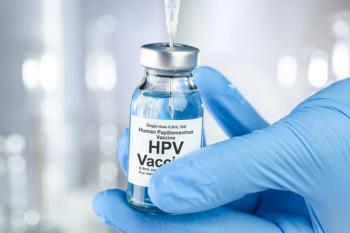
Treatment for recurrent uterine cancer advances to next research phase

The latest trial of a new antibody drug that delivers potent chemotherapy directly to cancer cells for patients with advanced or recurrent endometrial cancer moves ahead to be studied further in a phase III trial.
Results of the phase II study led by Yale Cancer Center (YCC) researchers at Yale School of Medicine looked at the antibody drug conjugate sacituzumab govitecan (SG) — also known as Trodelvy.
The study’s results were published in the
The findings are hopeful for patients with endometrial cancer (a type of
"This is the first publication demonstrating the clinical activity of Trodelvy in uterine cancer," said the study’s first author
SG is also being explored for its usefulness in delivering chemotherapy into the cancer cells of multiple types of metastatic solid tumors.
In the TROPiCS-03 phase II basket study (a study that looks at drug effectiveness in patients who have different cancers, but share the same biomarker), patients received 10 milligrams per kilogram of SG on day one and day eight of a 21-day cycle. In a heavily pretreated population (that is, patients had already received multiple rounds of chemotherapy and immunotherapy) with advanced, recurrent endometrial cancer, 22% responded to the treatment. Researchers reported that 61% of patients had a reduction in target lesions (22% of the patients fulfilled the criteria of partial response which was a 30% or more decrease in the size of the tumor). In patients that responded to the treatment, cancers remained stable for an average of 8.8 months without progressing.
As the trial continues, 29% of patients are still on treatment. No safety concerns were identified in the trial, and patients experienced manageable side effects such as fatigue and nausea.
Dr. Santin said the results of this trial, TROPiCS-03, mean researchers will be able to move forward to a phase III trial.
The trial was conducted with researchers from various institutions, including Ecaterina Dumbrava from the University of Texas MD Anderson Cancer Center who was the study’s senior author. Other authors include Bradley R. Corr, Alexander Spira, Lyndsay Willmott, James Butrynski, Ka Yu Tse, Jilpa Patel, Sabeen Mekan, Tia Wu, Kai-Wen Lin, and Peiwen Kuo.
Newsletter
Get the latest clinical updates, case studies, and expert commentary in obstetric and gynecologic care. Sign up now to stay informed.








